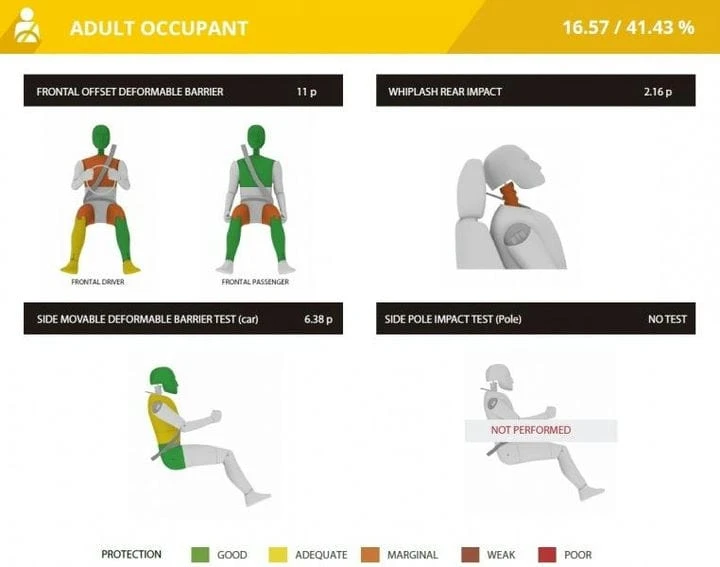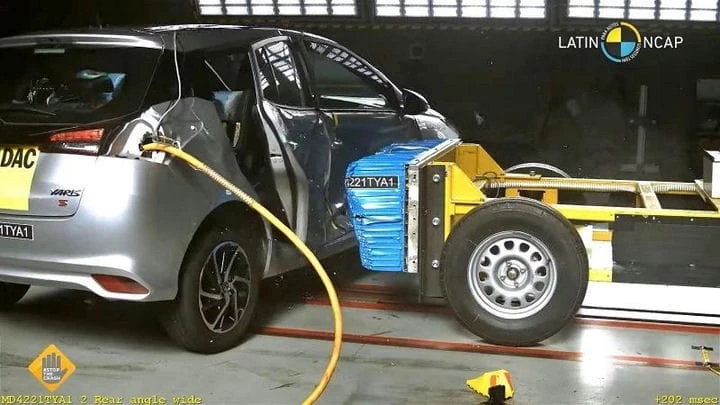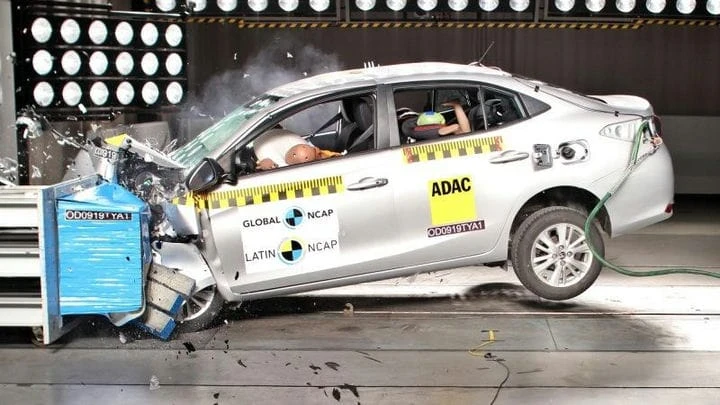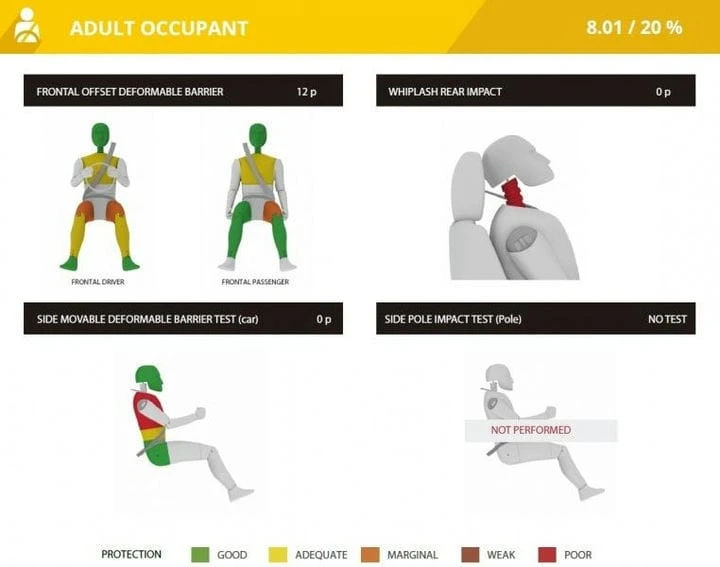Suzuki Baleno and Toyota Yaris in Latin NCAP crash tests: a lone star and no hope
The Latin NCAP Committee has reviewed the safety of two popular and affordable cars for the Latin American market: Suzuki Baleno and Toyota Yaris. Unfortunately, both performed poorly in crash tests, but if Yaris still managed to earn a star in the final rating, then Baleno left the tests with nothing.
The Latin American Toyota Yaris is by no means the Yaris sold in Europe, Japan, Australia and New Zealand that has managed to earn 5 stars in the challenging new Euro NCAP testing program. In Latin America and other countries of the so-called third world, a model of the past is offered – the third generation XP150, known since 2013. In 2019, the Brazilian-built Yaris had already been crash tested by the Latin NCAP and thus was able to earn a pretty decent 4-star rating, but now the Latin NCAP has decided to conduct a second audit session to see if there are differences in the quality of the safety systems in different copies of the model..
Last year, the Brazilian Hyundai HB20 lost three of its four previously earned stars during this audit, and now the Toyota Yaris has a similar problem. In the basic configuration, the Latin American Yaris has only two front airbags and an ESC (stabilization system), although seven airbags can be obtained for a fee, including one for the knees, but it was the base Yaris that participated in the tests.
Toyota Yaris
In a frontal impact at a speed of 64 km / h on a deformable barrier of lethal weights, installed with a displacement of 40% on the driver's side, the dummy's sensors did not register, as well as the driver's knees, hips and chest as the knees and hips of the front passenger in the protocol had to be painted in orange color, which means the maximum level of danger, at which serious bruises and fractures are possible. In addition, the body structure proved to be unstable and unable to protect the riders from further impacts.
Toyota Yaris
Toyota Yaris
Judging by the sensors, the Yaris did well in a side crash test on a deformable barrier at a speed of 50 km / h, but the passenger door opened on impact, which means that the risk of people falling out of the cabin is a very serious inconvenience that the last session did not reveal. Another drawback: the seat belt reminder system could not detect the front passenger, that is, it did not work. For this Yaris was deprived of three and four stars.
Suzuki Baleno arrives in Latin America from India. There are two airbags in the base, up to six airbags for an extra charge, and in principle there is no ESC. Baleno coped with a frontal impact even better than the Yaris, there are fewer orange spots in the protocol, the body structure was recognized as stable. But in a side impact, the dummy's chest turned red and became deadly. The front head restraints also failed a separate crash test at 16 km/h – danger level red.
Suzuki baleno
Both cars could not withstand a side impact on a pole – it only works with regular side airbags. The active safety system has also not been tested, since there is nothing to check: neither Yaris nor Baleno offer, even for a fee, either an automatic emergency braking system (AEB), or a lane control system, much less a simple speed limiter.
Following the test results, Latin NCAP experts urged Toyota and Suzuki to urgently improve the safety of their models for the Latin American market, but given the age (the current Baleno has been produced since 2015) and the state of the balance of both cars, these calls are unlikely to be heard.




